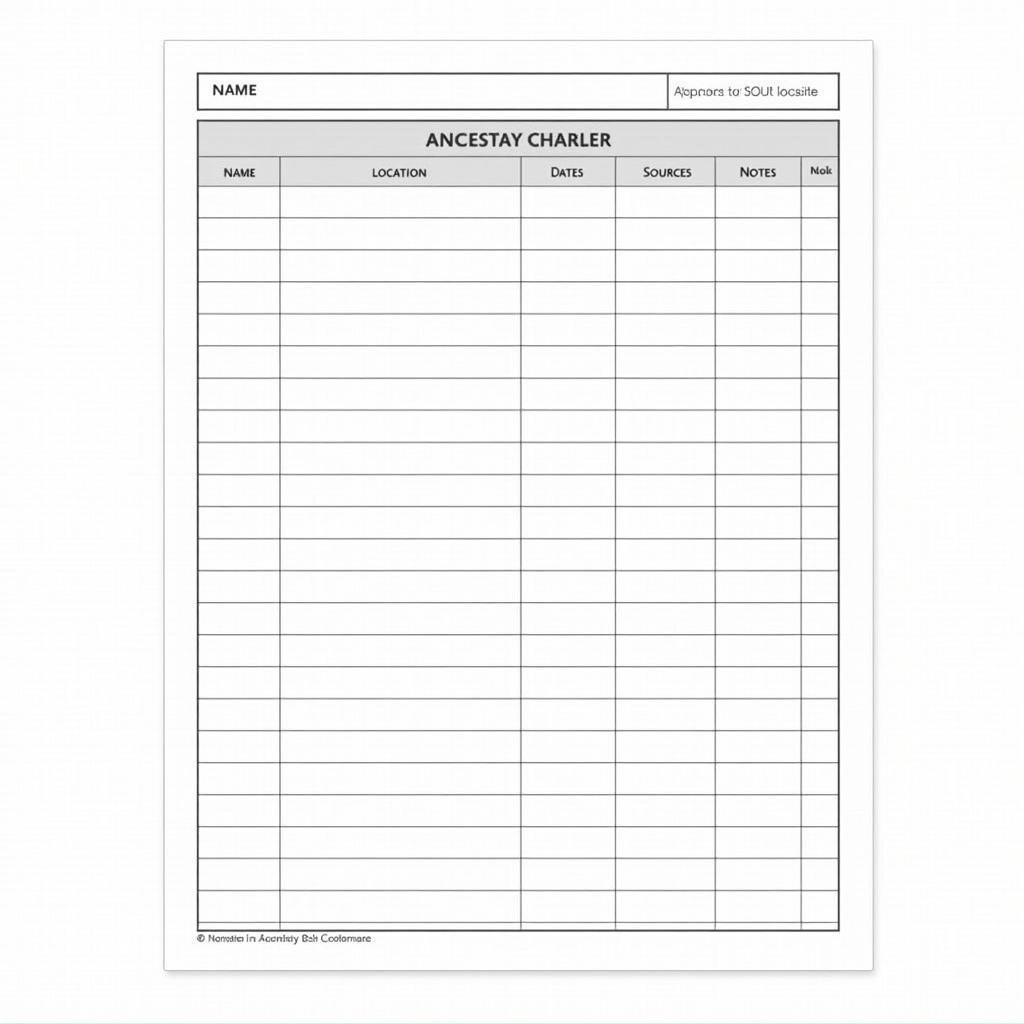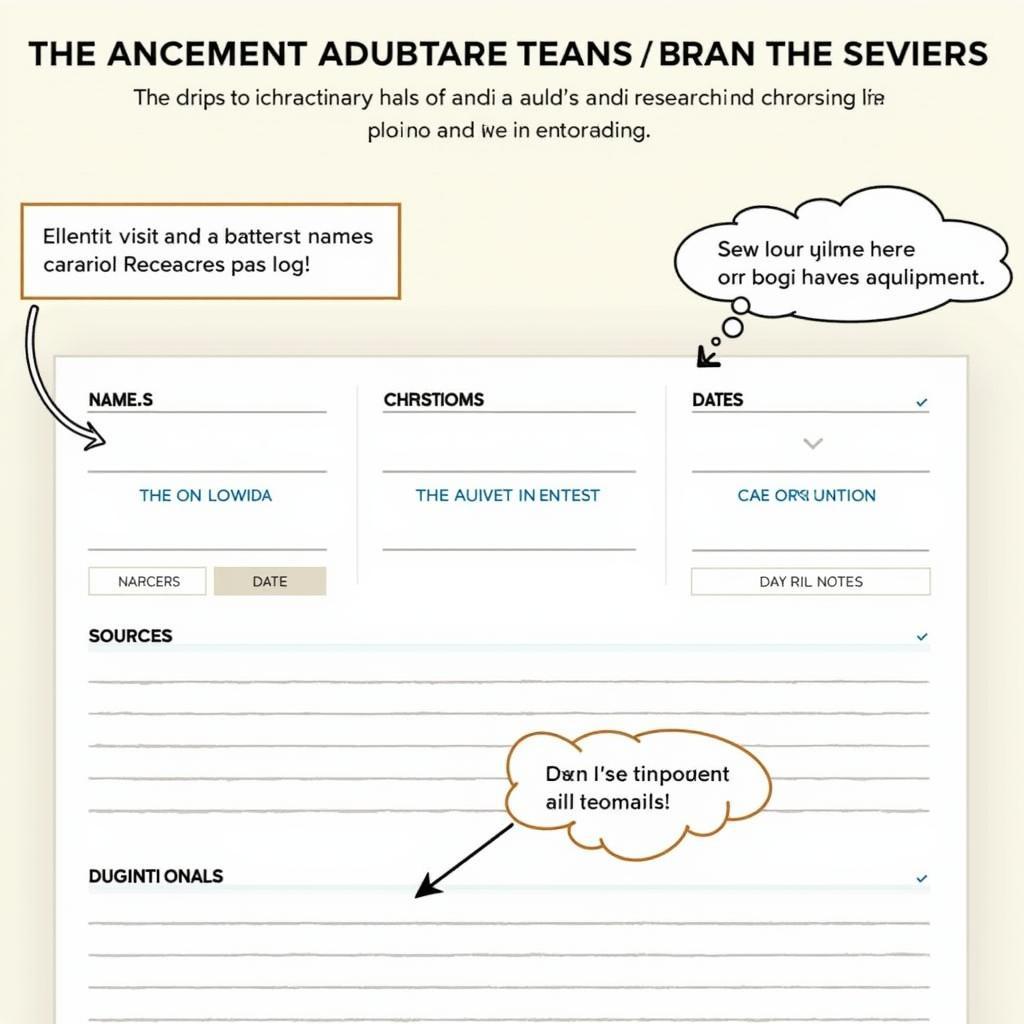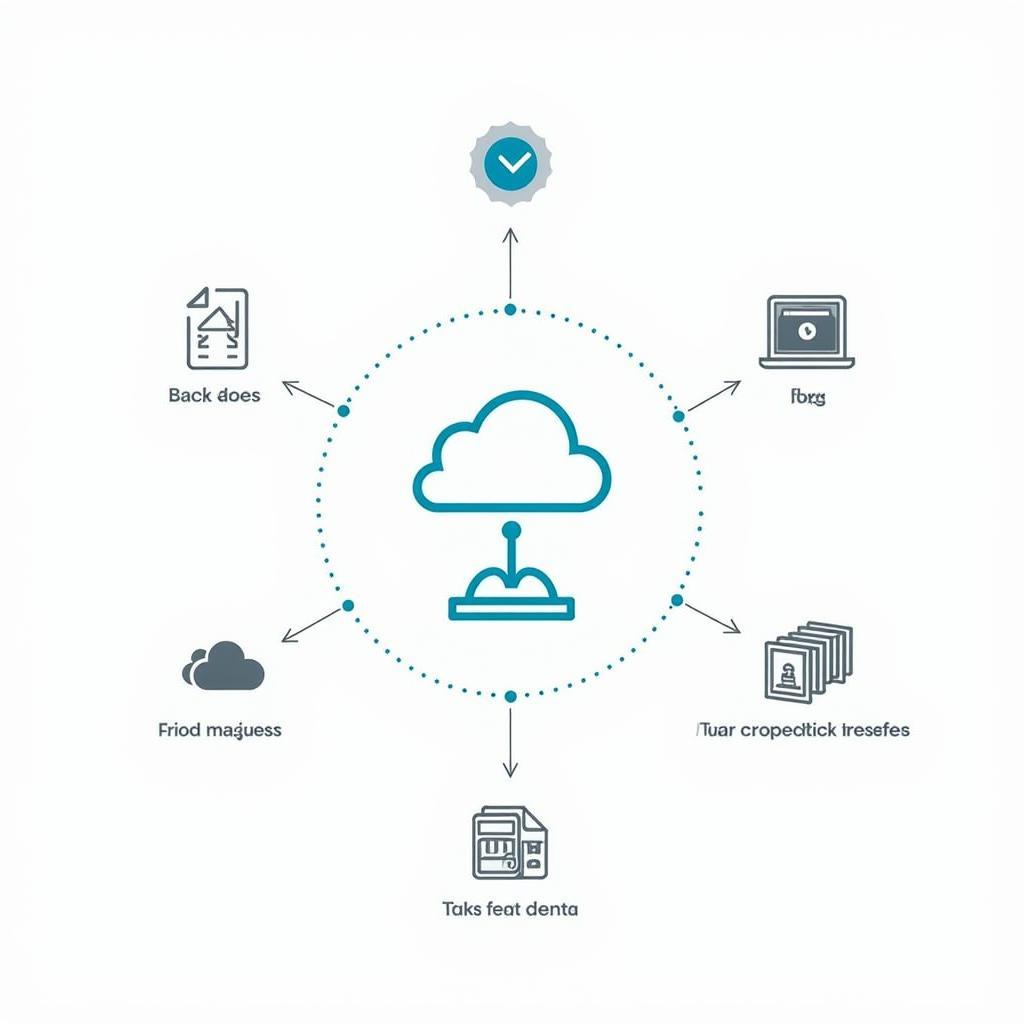Ancestry research, a journey into the past, is often complex. An Ancestry Research Log helps navigate this complexity, acting as a personalized roadmap to discovering your roots. Within the first steps of genealogical exploration, the importance of meticulous record-keeping becomes evident. This is where your ancestry research log becomes indispensable.
Why is an Ancestry Research Log Essential?
An ancestry research log is more than just a notebook; it’s your central hub for all things related to your family history. It allows you to keep track of every piece of information you uncover, from birth certificates and census records to family stories and photographs. Without a well-maintained log, you risk retracing steps, overlooking crucial details, and ultimately, hindering your progress. A comprehensive log also fosters collaboration with other family members researching their genealogy, creating a shared space for discoveries and insights. Think of your ancestry research log as a living document, constantly evolving as your family tree grows and branches out.
Remember those times you thought you’d remember a website forever? Or the name of that distant cousin who held the key to your great-grandmother’s maiden name? Ancestry research often involves sifting through a mountain of information. A log serves as your memory palace, preventing those frustrating moments of “I know I saw that somewhere!”
 Example of a well-organized ancestry research log
Example of a well-organized ancestry research log
Different Methods for Maintaining an Ancestry Research Log
There are various approaches to creating an ancestry research log, each catering to different preferences and tech savviness. You can opt for a traditional pen-and-paper approach, utilizing notebooks, binders, or index cards. This method offers a tactile experience and allows for quick jotting down of notes. For digitally inclined researchers, genealogy software programs provide integrated logging capabilities, often with features like automated source citations and online tree syncing. Spreadsheets also offer a customizable and readily available option. Consider tools like Google Sheets or Excel to create a structured log.
Choosing the right method is a personal decision. Some researchers prefer the tangibility of a physical logbook, while others appreciate the searchability and collaborative features of digital platforms. Explore genealogy research tips for more advice on selecting the best tools for your research journey.
What Should Your Ancestry Research Log Include?
Regardless of the method you choose, a robust ancestry research log should contain certain key elements. At a minimum, include the full name of the individual, dates (birth, marriage, death), locations associated with their life, and the sources of your information. Enrich your log with additional details like family stories, photographs, and even audio recordings. These seemingly small details can paint a vibrant picture of your ancestors’ lives.
Maintaining a detailed ancestry research log isn’t just about dates and names; it’s about breathing life into your family history. Capture the stories, the anecdotes, the whispers of the past. These narratives transform your log from a dry record of facts into a tapestry of human lives.
 Essential elements of an ancestry research log
Essential elements of an ancestry research log
Ancestry Research Log: Tips and Tricks
- Stay Organized: Develop a consistent system for recording information. This might involve using templates, color-coding, or assigning unique identifiers to individuals.
- Cite Your Sources: Meticulously document where you found each piece of information. This ensures accuracy and allows you to revisit sources later.
- Back Up Your Data: Whether you choose a digital or physical log, create backups to safeguard your precious research.
- Be Patient: Genealogy research is a marathon, not a sprint. Don’t get discouraged if you hit roadblocks. Celebrate small victories and enjoy the process of discovery.
- Connect with Others: Join online communities or local genealogy groups. Sharing your research and learning from others can be invaluable. A good resource to check out is familylink genealogy research.
 Backing up a digital ancestry research log
Backing up a digital ancestry research log
“A well-maintained ancestry research log is the cornerstone of any successful genealogical endeavor,” says renowned genealogist Dr. Eleanor Vance. “It provides the structure, organization, and clarity necessary to navigate the often-complex world of family history research.”
Another expert, Professor Michael Davies, adds, “The ancestry research log is your personal time machine. It’s the key to unlocking the stories of your ancestors and connecting with your heritage in a meaningful way.”
Conclusion
An ancestry research log is an essential tool for anyone embarking on a genealogical journey. It provides a framework for organizing information, tracking progress, and ultimately, uncovering the rich tapestry of your family history. By diligently maintaining an ancestry research log, you ensure that your research is accurate, organized, and readily accessible for future generations. Embrace the power of the ancestry research log, and unlock the secrets of your past. For a comprehensive guide to starting your research, see our genealogy research checklist.
FAQs
- What is the purpose of an ancestry research log?
- What are the different methods for maintaining an ancestry research log?
- What information should be included in an ancestry research log?
- How can I ensure the accuracy of my research?
- What are some tips for staying organized while conducting genealogy research?
- Where can I find additional resources for ancestry research?
- How can I connect with other genealogy researchers?
Need further assistance with your ancestry research? Don’t hesitate to contact us.
Phone: 0904826292
Email: research@gmail.com
Address: No. 31, Alley 142/7, P. Phú Viên, Bồ Đề, Long Biên, Hà Nội, Việt Nam.
Our customer service team is available 24/7 to answer your questions and provide support. We also have more articles related to ancestry research. You can check out Research Genealogy Sims 4 and Dog Research Topics for more insights.